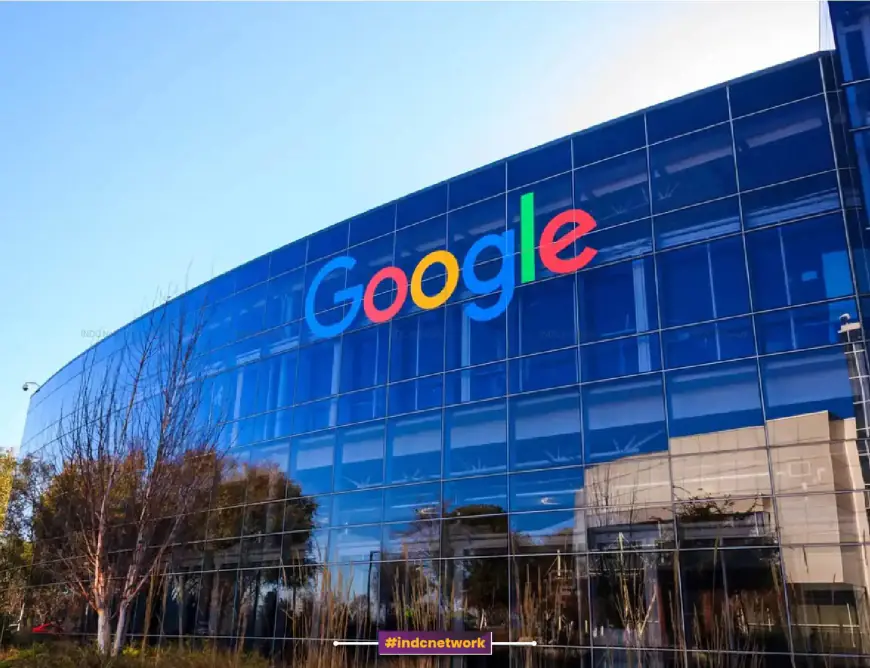An Unprecedented Financial Penalty: Russia’s $20 Decillion Fine Against Google and Its Implications
Russia has imposed an extraordinary fine of $20 decillion on Google over the blocking of state-run media channels on YouTube. This move highlights ongoing tensions between the country and Western tech companies, raising questions about censorship, media freedom, and the future of digital platforms operating within Russia.

INDC Network : In a move that has sent shockwaves through the international community, Russia has slapped Google with an astonishing fine of $20 decillion—an amount represented by the numeral 2 followed by 34 zeroes. This astronomical penalty, which far exceeds the scale of any reasonable financial measurement, is a stark reminder of the escalating tensions between Russia and Western technology firms. The fine is directed specifically at YouTube, a platform owned by Google’s parent company, Alphabet, for its decision to block various Russian state-run media channels following Russia's invasion of Ukraine.
The roots of this unprecedented fine trace back to March 2022, when YouTube made the controversial decision to impose a global ban on numerous Russian state-operated channels, including the prominent RT and Sputnik. This action was justified by YouTube on the grounds of adhering to content policies aimed at prohibiting material that denies, trivializes, or minimizes violent events. In its enforcement of these policies, YouTube has reportedly removed over 1,000 channels and more than 15,000 videos worldwide, taking a particularly strong stance against narratives that support the Russian government’s position in the ongoing conflict.
The Russian court ruling that resulted in the fine claimed that Google violated national broadcasting rules by barring these state-backed media channels from its platform. As if the original fine wasn’t staggering enough, the ruling also includes a directive requiring the restoration of these blocked channels. To compound matters, Google faces the possibility of having its fines double every day if it fails to comply with the court's orders within a nine-month period.
The Kremlin has characterized the fine as a largely symbolic measure intended to pressure Google into reconsidering its restrictions on Russian media. Dmitry Peskov, spokesperson for the Kremlin, expressed the surreal nature of the situation, admitting, "I can't even pronounce this figure right." This statement underscores the extraordinary nature of the fine, which is so excessive that it challenges the very limits of financial reality.
Since the onset of the conflict, Russian authorities have intensified their scrutiny and penalties against foreign tech platforms that host content deemed anti-Russian or supportive of Ukraine. Google’s operations within Russia have been significantly curtailed, yet it has not completely withdrawn from the market—unlike several American tech companies that have fully exited. Despite facing ongoing penalties, Google has kept its YouTube and search services accessible within Russian borders, even after its subsidiary in Russia filed for bankruptcy following the seizure of its bank accounts by the Russian government.
As the situation continues to unfold, it raises broader questions about media freedom and censorship. Seventeen Russian broadcasters have reportedly joined the legal battle, filing suits against Google and demanding the reinstatement of their channels on the platform. This collective action underscores the significant backlash against YouTube's bans and reflects a growing sense of urgency among Russian media outlets to reclaim their presence online.
The dramatic nature of the $20 decillion fine paints a grim picture of the future for tech companies operating in Russia. Should Google fail to navigate these choppy waters, it may face severe repercussions that extend beyond financial penalties. The prospect of an outright ban on YouTube looms large, as Russian authorities have threatened to block the platform entirely if it persists in restricting Russian media channels.
In the grand scheme of things, this fine serves as a stark reminder of the lengths to which governments may go to exert control over digital platforms, particularly when those platforms become venues for dissenting voices. It highlights the precarious balance that tech companies must maintain in operating within jurisdictions that enforce strict media regulations. The global community watches closely, as this situation not only affects the future of Google and YouTube in Russia but also sets a precedent for how nations might engage with foreign tech firms in an increasingly polarized world.
As this saga unfolds, the question remains: how will Google respond to this extraordinary financial ultimatum, and what implications will it have for digital media and free speech in the region?
What's Your Reaction?













































































































































































